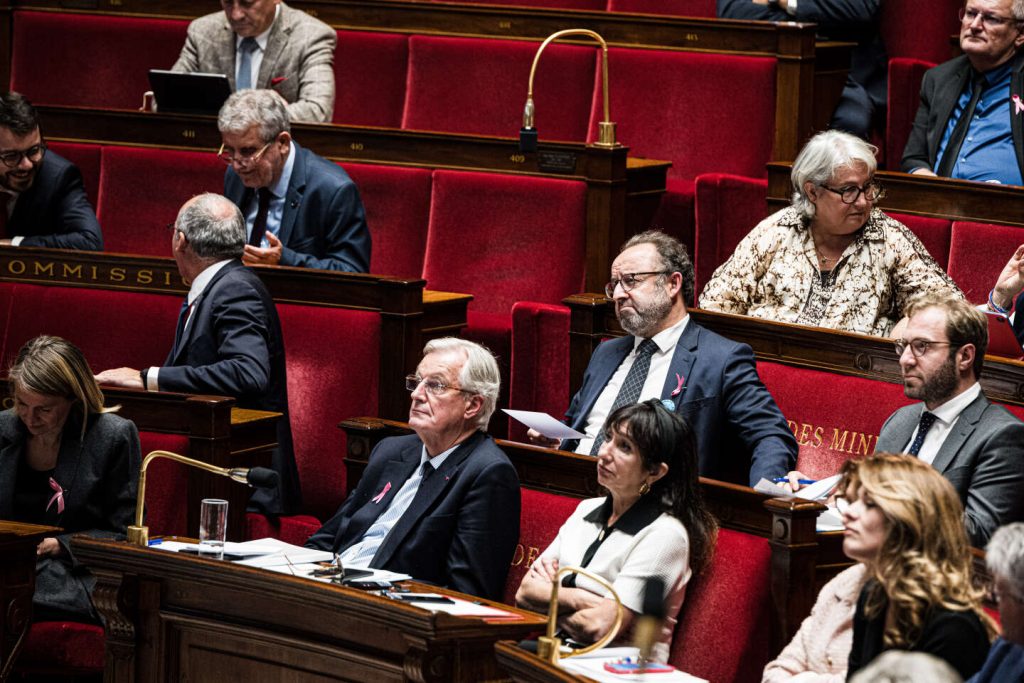The motion of censure brought forward by the left against Prime Minister Michel Barnier’s government did not gather enough support in the National Assembly on October 8, 2024. With only 197 votes in favor, far from the 289 required to bring down the government, the motion was ultimately rejected. The only additional votes came from the Liberté, indépendants, outre-mer et territoires (LIOT) group and one non-aligned member, David Taupiac. Within the Nouveau Front populaire (NFP), only New Caledonian independence advocate Emmanuel Tjibaou did not support the censure.
The left argued for the censure as a matter of principle against a government that did not seek the confidence of the National Assembly, which it deemed illegitimate. The leader of the Socialist Party, Olivier Faure, criticized the government for not being elected by the people and suggested that it did not have a mandate to govern. He raised concerns about potential cuts to social policies in the upcoming budget announcement and questioned the government’s commitment to fiscal justice. Faure accused the government of prioritizing the wealthy over those in need.
During his address to the assembly, Prime Minister Michel Barnier defended his government’s legitimacy and responded to criticisms raised by the left. He emphasized the need to address France’s excessive spending and borrowing practices, which he argued were unsustainable. Barnier highlighted the challenges of maintaining financial stability and stressed the importance of fiscal responsibility. Despite facing opposition from the left, he stood by his government’s policies and economic strategies.
The Rassemblement national (RN) announced that they would not support the censure motion, but their deputies’ speeches were highly anticipated. The far-right group, which positioned itself as an opposition force, was scrutinized for its alignment with the government’s policies. RN member Guillaume Bigot explained the party’s decision-making process and its stance on the motion, underscoring the party’s strategic considerations. The RN’s ambivalence towards the censure motion raised questions about their political maneuvering and alliances.
Overall, the failed censure motion revealed the political divisions within the National Assembly, with the left seeking to challenge the government’s legitimacy and policies, while the majority supported Prime Minister Barnier’s administration. The debates surrounding fiscal responsibility, social policies, and political alliances reflected broader ideological differences among the various political factions. Moving forward, the government’s ability to navigate these challenges and address the concerns raised by the opposition will be crucial in maintaining stability and governing effectively.


